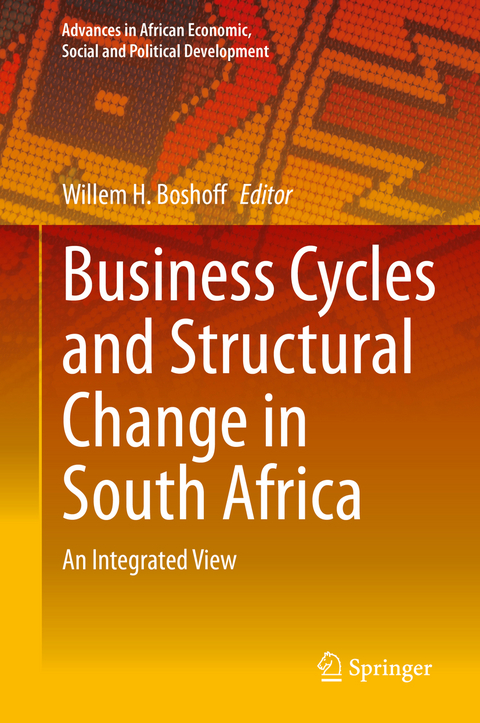
Business Cycles and Structural Change in South Africa
Springer International Publishing (Verlag)
978-3-030-35756-6 (ISBN)
This book investigates the South African business cycle and its links to structural change in the economy. Against the backdrop of the democratic transition in 1994 and the global financial crisis, the authors study how business cycles in South Africa have changed and how cycles are related to key developments in the financial markets, international trade and business sentiment in the country. By focusing on peaks and troughs in economic activity - so-called 'turning-point cycles' - the book links up with the common approach of international policymakers to studying fluctuations in economic activity. The authors also introduce new approaches to measuring phases of the business cycle (to understand slow recoveries after the global crisis), provide comprehensive descriptions to complement quantitative analyses, and utilize new data sources that allow the measurement of economic activity over longer periods. As such, the book provides the first integrated overview of business cycles inan emerging market, providing academics and policymakers with a better understanding of the measurement challenges and drivers of the cycle.
lt;p>Willem Boshoff is an economist at Stellenbosch University, South Africa, where he is an Associate Professor of Economics and the Director of the Centre for Competition Law and Economics. He teaches macroeconomics, time-series analysis and industrial organization. He holds a Ph.D. in economics from Stellenbosch University and has published on South African business and financial cycles, cycles in collusion, and statistical applications to competition policy problems. Prof. Boshoff is editor of the Journal for Studies in Economics and Econometrics and is a National Research Foundation 'rated' researcher.
Introduction.- Part I - Looking Back: What Do We Know About the South African Business Cycle?.- The South African Economy in the Twentieth Century.- Part II - The Financial Crisis and Its Impact on the Cycle: Business Cycle Recoveries - A Comparative View.- The Role of Institutional Structure in Mediating the Impact of the Financial Crisis on the South African Business Cycle.- Part III - Key Drivers of the South African Business Cycle: A History of South Africa's Modern Business Cycle.- On the Estimation and Application of Structural Decompositions of the South African Business Cycle.- Part IV - Predicting the South African Business Cycle: Business Confidence and the Business Cycle in South Africa.- Assessing the 2013 and 2017 Business Cycle Turning Points Signalled by the SARB's Composite Leading Business Cycle Indicator.- Conclusions.
| Erscheinungsdatum | 22.04.2021 |
|---|---|
| Reihe/Serie | Advances in African Economic, Social and Political Development |
| Zusatzinfo | X, 292 p. 87 illus., 62 illus. in color. |
| Verlagsort | Cham |
| Sprache | englisch |
| Maße | 155 x 235 mm |
| Gewicht | 468 g |
| Themenwelt | Geisteswissenschaften ► Geschichte |
| Wirtschaft ► Betriebswirtschaft / Management ► Finanzierung | |
| Wirtschaft ► Betriebswirtschaft / Management ► Unternehmensführung / Management | |
| Wirtschaft ► Volkswirtschaftslehre ► Finanzwissenschaft | |
| Wirtschaft ► Volkswirtschaftslehre ► Makroökonomie | |
| Schlagworte | Business Cycle • Business Sentiment • Co-movement • Deviation cycle • Financial Crises • Financial Crisis • financial cycle • South Africa • Structural Change • Trend-cycle decomposition • Turning point cycle |
| ISBN-10 | 3-030-35756-2 / 3030357562 |
| ISBN-13 | 978-3-030-35756-6 / 9783030357566 |
| Zustand | Neuware |
| Informationen gemäß Produktsicherheitsverordnung (GPSR) | |
| Haben Sie eine Frage zum Produkt? |
aus dem Bereich


